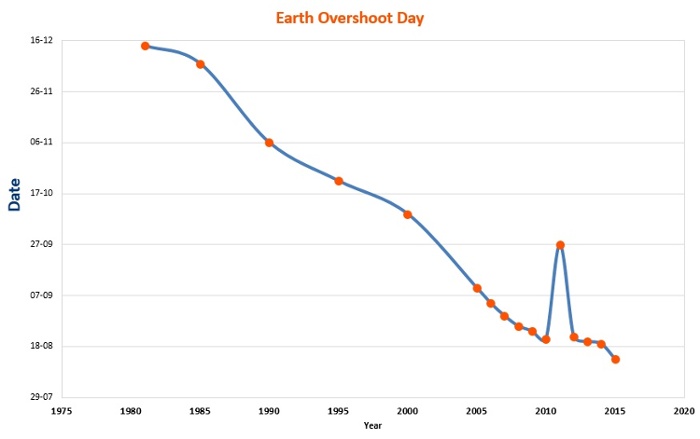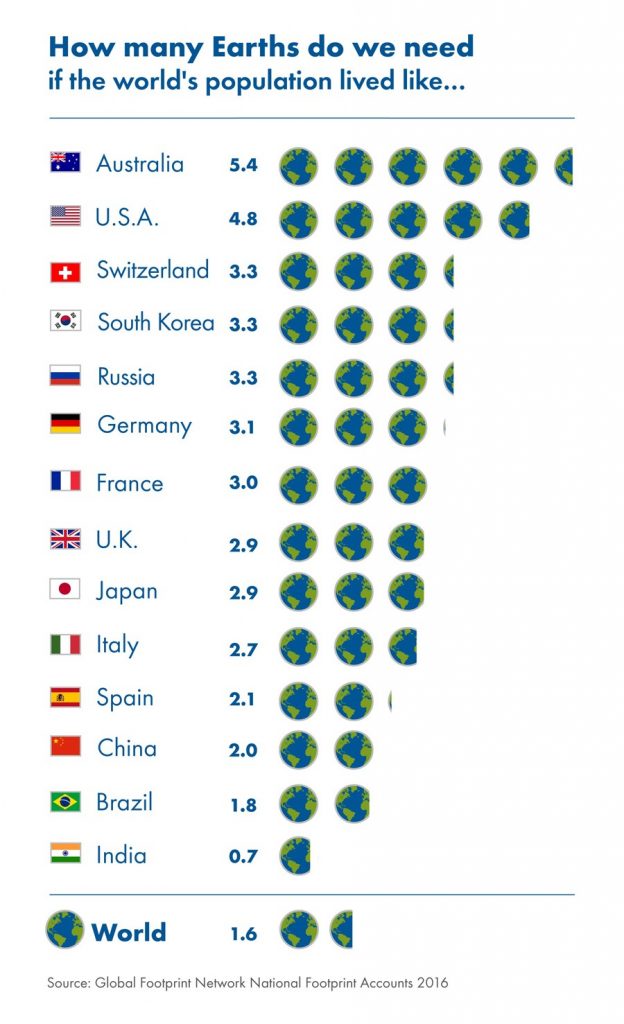‘Earth Overshoot Day’ earliest ever arrival sparks widespread calls for responsible resource use

August 8th, 2016
Today, the 8th of August, marks the point for 2016 at which humans have used more resources than the planet can regenerate in a year. In other words, from today until the end of 2016, we will be in ecological debt.
Earth Overshoot Day, calculated annually since the 1970s by international think tank Global Footprint Network, measures human’s demand for resources against the planet’s capacity to provide them. This year’s date is the earliest ever point of reaching the milestone, coming five days earlier than last year, and follows the general trend since 1981 of consuming a sustainable allocation of resources earlier, year-on-year.
The calculations are carried out on data from more than 200 countries, and considers the impact of sectors such as energy generation, transport, food production and forestry, as well as the largest and fastest-growing environmental impact: greenhouse gas emissions, accounting for 60% of humanity’s ecological footprint.
The last period in which humans consumed resources within the regenerative capacity of the planet was the 1960s, when we used approximately three-quarters of the planet’s annual resources per year. However, with the economic and population growth of recent decades, increased consumption has meant that the planet has been in ecological overshoot ever since.
Indeed, as this chart shows, if the global population were to lead the lifestyle of citizens of wealthy nations like Australia, we would need over 5 times more resources than those provided by our planet. Global consumption is currently at 1.6 times the resources available to us on earth.
In an associated strategic shift, Scotland’s Environmental Protection Agency (SEPA) have recently downgraded air, water and soil pollution as the critical environmental issues of our time, assigning top priority to “overusing the planet as a resource base”, according to SEPA’s chief executive, Terry A’Hearn, in a recent interview with the Guardian.
With the global population expected to reach 11 Billion by the end of the century, there will be ever greater strain upon our planet’s ability to sustainably provide food, energy and other resources to all inhabitants of the world.
There are reasons to be hopeful, however, as the Global Footprint Network have observed a decrease in the rate at which Earth Overshoot Day is moving up on the calendar, from a rate of three days per year in the 1970s to under one day per year currently. Also, of last December’s Paris Agreement on mitigating Climate Change, co-founder and CEO of Global Footprint Network, Mathis Wackernagel, had this to say: “It will stimulate emerging sectors like renewable energy, while reducing risks and costs associated with the impact of climate change on inadequate infrastructure. The only resource we still need more of is political will.”
[x_button shape=”square” size=”regular” float=”none” href=”http://www.footprintnetwork.org/en/index.php/GFN/page/methodology/” info=”none” info_place=”top” info_trigger=”hover”]Click here for more information on how the study was carried out[/x_button]
[x_author title=”About the Author”]









